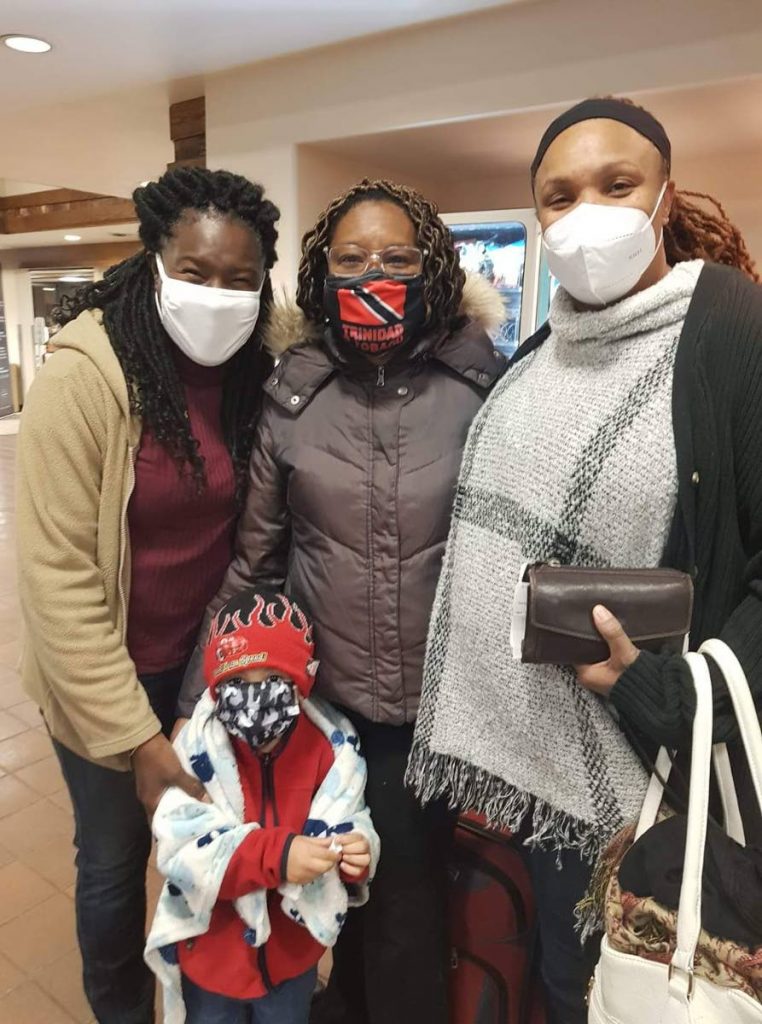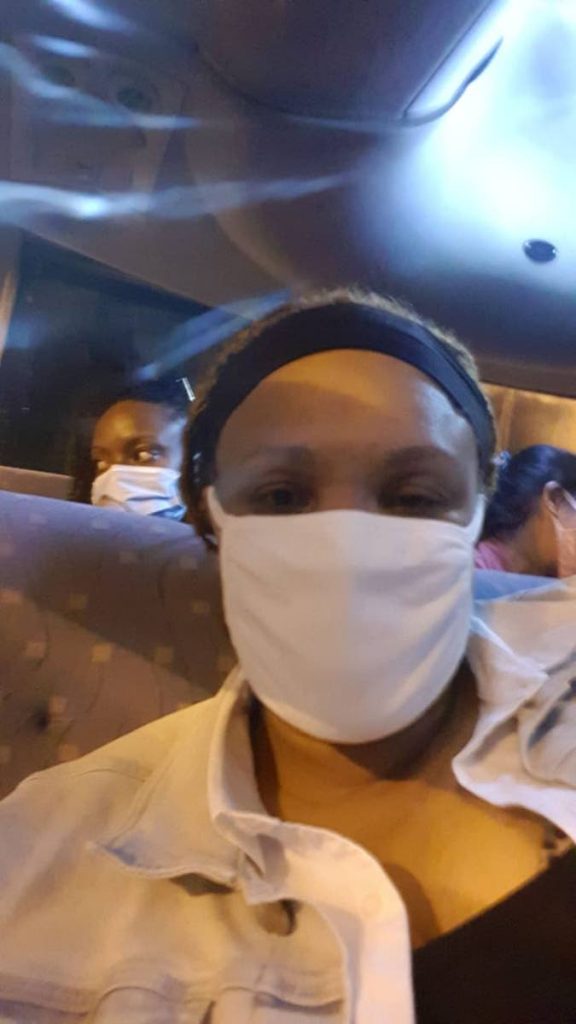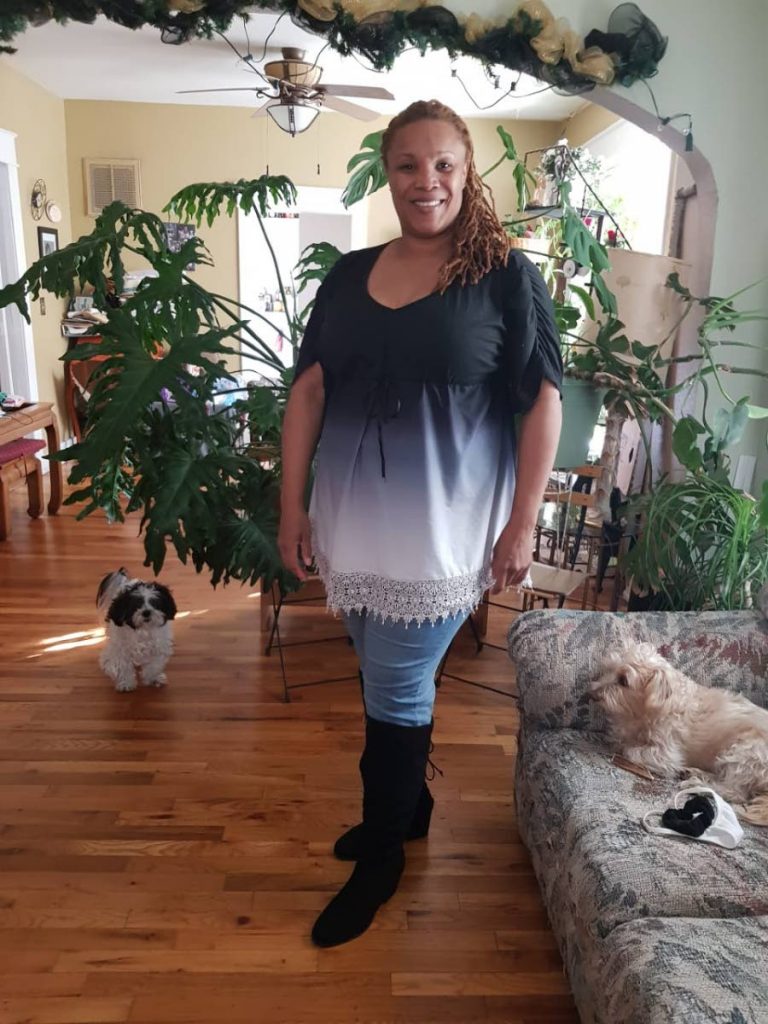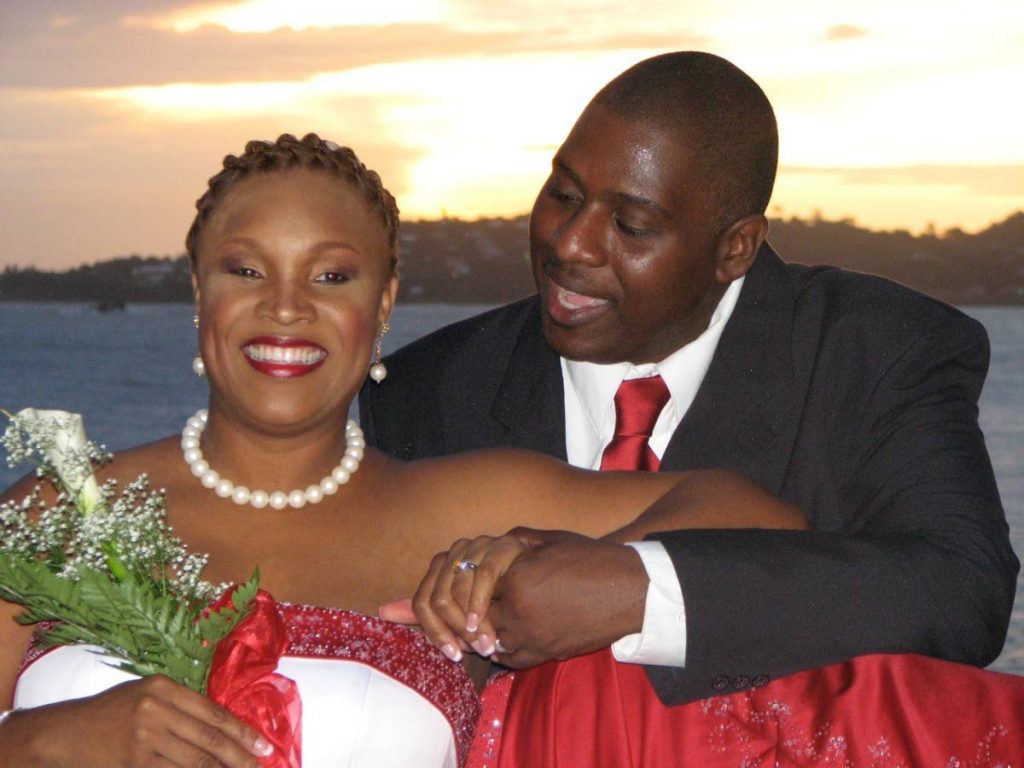Desiree's home at last

WHEN Desiree Connor-Edwards left TT on March 8 to go to the US to visit her sister, she had no idea it would be eight months before she would see her home or her husband again.
And when the day that she could return finally came, she took four flights and flew for hours to get home.
“From Pueblo to Denver, Denver to Houston, Houston to Miami, it took 12 hours and I was exhausted,” before the final Miami to TT leg, Connor-Edwards told Newsday.
Her sister had a double mastectomy and she had gone to Colorado to help take care of her three-year-old nephew.
“Although Ray (vocalist Raymond Edwards), my husband, was also undergoing cancer treatment, we felt that he could manage on his own for one month. So I left, and then the borders closed!” She was repatriated on November 12.

She said when the Prime Minister announced the closure of the TT borders effective midnight on March 22, she immediately thought about her husband and her job at the Ministry of Sport and Youth Affairs. Edwards was diagnosed with stage three colon cancer in 2003, for which he has been treated. At the end of February, just prior to when covid19 arrived in TT, he had undergone eight rounds of chemo.
“I got worried, as my thoughts went straight to Ray and my job because I was between contracts. I was hopeful that the borders would open sooner, but that is yet to happen.”
And while many of the people who were stuck out of TT kept pleading to return home, Connor-Edwards said she is a firm believer of everything in its time. She had applied only once and was turned down.
“I don't believe in harassing people who are performing a very difficult job. I was told they were not only granting exemptions but also arranging flights from all over the world. We have to learn to sit and wait quietly. I came home when I was supposed to come home.”
She said although she was in a difficult situation she took every challenge as it came.
“Financially it was difficult, as changing TT dollars is a challenge. The banks there have strict limits on how much you can withdraw per day. Meanwhile, Ray was in Trinidad managing our household.
“Emotionally I was fine because I was with family. But I have friends who are stuck in hotels or sleeping on friends’ couches. I can just imagine their frustration.
“When you are in difficult situations, I believe the best approach is to take it day by day. It is how I have been living for the past eight months. It makes no sense worrying about the future or fretting about the past. Ray assured me that he was doing fine, and once he's cool, I'm cool.”

The reason she went to Colorado in the first place was one of the things that kept her mind off the difficult period.
“I am aunty to a precocious three-year-old, so I had to learn games, make up games, feed him, entertain him and keep him well occupied while trying to work remotely. I don't have children of my own but he made me want to have one. The unconditional love and watching his development was amazing.”
The time away, she said, has definitely affected the way in which she did her job, but not severely. “While I was away there was a general election, and the ministry in which I work was transformed and I was reassigned. I am yet to connect face to face with my colleagues.”
But, she said, there are advantages to some of the things that the pandemic has forced on the world.
“Covid has also proven that some government departments can be more efficient and effective as remote units. I got up at five every morning Colorado time to ensure that I was at my desk by 8 am TT time. Note Colorado tends to be two to three hours behind TT time. No traffic, no hustle, and the work got done.
“We need to get away from this thinking that some people hold that working at home is not actually working. In truth and in fact you work harder and longer. Even finding new and creative ways to get the job done.”
When she got the news that she was being repatriated, she faced a new challenge – paying for the flights.
“I was in shock, then a brief moment of panic. ‘Can I afford to get home?’ But family and friends stepped up and made it happen, and I am grateful.”

Eight months later, with the continued spread of the coronavirus around the world, Connor-Edwards said she feels blessed to be back home and she is praying for the thousands still stuck abroad. When she arrived in TT last Friday she, “quarantined, ate a chicken roti with plenty pepper, and hugged up my husband,” not necessarily in that order. “Work will see me in about two weeks.”
She said this experience has taught her many lessons. “Family is important; learn to love where you are at the time you are; reassess what is truly important in life; you only have one life, learn to love it.”
Meanwhile, Edwards, who had been managing well on his own, is nevertheless delighted to have his wife home. Over the past few months he had, on his Facebook page, made several appeals to the national security minister to grant his wife an exemption so she could return home.
“She was supposed to return in April so we could have celebrated our birthdays together,” Edwards told Newsday. In her absence, though, “I’ve been doing quite well. I did my check up at St James infirmary and the doctors are pleased with my progress. For the most part I’ve been using the time she’s been gone to learn new skills. I have a slight flair for cooking, so I’ve been doing that. I like what I cook, but I’m not sure if anyone else will. Des will eat it, but I’m not certain if she will like it,” he chuckled.


Comments
"Desiree’s home at last"